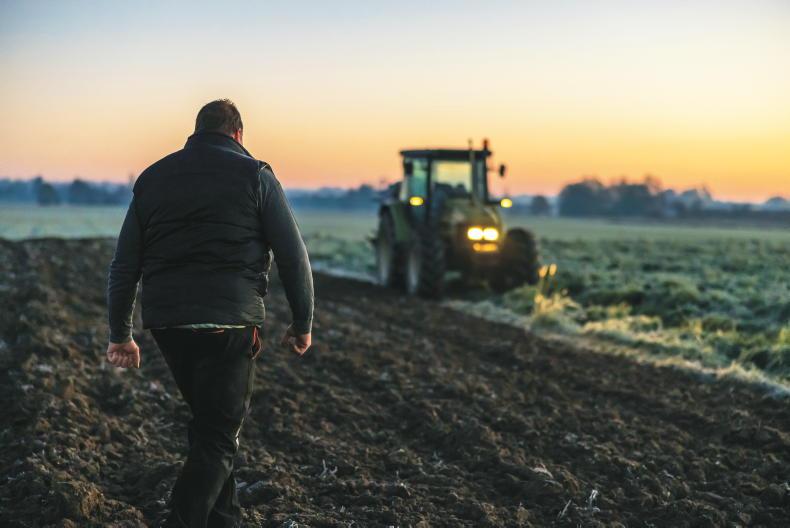Budget 2022 gave a little something to everyone, including the agricultural population. Whether it was small increases in personal tax bands, tax credits or the universal social charge (USC), it was all very welcome.
The rollover funding for farm schemes and the extension of tax reliefs are important for the farming community. The extension of stamp duty and stock relief measures will assist with farm transfers and generational renewal.
The reduction in the farmer flat-rate VAT refund from 5.65% to 5.5% for farmers who are not registered for VAT (with effect from 1 January 2022) was not welcomed, however.
Budget changes for employees
Under Budget 2022, the income tax standard band increased by €1,500 (from €35,300 to €36,800) and the ceiling of the second USC band increased to €21,295.
There was an increase of €50 to the personal tax credits, employee tax credits and earned income credits.
Petrol and diesel costs were increased, effective immediately, which if dependent on a car to travel to work will reduce those net savings
All of these changes could result in a net saving of anything between €415 and €830 depending on family circumstances, such as whether you are single or married, have children, rent or own a property and whether there is one household income or two.
Petrol and diesel costs were increased, effective immediately, which if dependent on a car to travel to work will reduce those net savings.
COVID-19 also had an impact on the budget, with tax breaks announced for all those working from home.
It was announced that 30% of the cost on all utilities such as electricity, heat and broadband can be offset against any taxable income, dependent on how many days you worked from home.
Previously, a payment of €3.20 per day was made to employees working from home by some employers.
Budget changes for employers
Under Budget 2022, the national minimum wage will increase by €0.30 to €10.50 per hour from 1 January 2022.
Pandemic unemployment payments (PUP) will be phased out from next February. The employer wage subsidy scheme (EWSS) support for companies and businesses will continue until 30 April 2022, but will close to new entrants after 1 January 2022.
It was confirmed that there will be a return to full rates of employer PRSI, with effect from March 2022
Under the EWSS, the primary qualifying criteria was that the employer must be able to demonstrate that they are operating at no more than 70% of their previous turnover level. This will not change too quickly, in particular as COVID-19 is still around and gaining momentum once again.
It was confirmed that there will be a return to full rates of employer PRSI, with effect from March 2022.
The benefit in kind (BIK) tax on the provision of electric company cars by employers to employees’ exemption will be extended to 2025, with a tapering effect on the vehicle value from 2023.
There was extra funding of €15m provided for under the COVID-19 Credit Guarantee Scheme, which provides low-cost loans for businesses negatively affected by COVID-19. An extra €5m was outlined for the Food Transformation Fund Scheme to help agri-food businesses adapt to the impact of Brexit.
Carbon tax is to be increased by €7.50 from €33.50/t to €41/t of CO2 emitted, which should result in a tax increase of €109m for the Government. Increases in vehicle registration tax (VRT) for a number of bands of CO2-emitting vehicles is forecast to result in an extra €82m.
The €5,000 VRT relief for battery electric vehicles in VRT categories A and B was extended until the end of 2023.
A new corporate tax rate of 15% will be introduced for businesses with a turnover of more than €750m per year.
There will be no change to this tax rate of 12.5% for businesses with a turnover of less than €750m.
Read more
Money Mentor: KBC bank undergoes a full phase two investigation under CCPC
Money Mentor: Budget 2022 and its effect on farming households
Budget 2022 gave a little something to everyone, including the agricultural population. Whether it was small increases in personal tax bands, tax credits or the universal social charge (USC), it was all very welcome.
The rollover funding for farm schemes and the extension of tax reliefs are important for the farming community. The extension of stamp duty and stock relief measures will assist with farm transfers and generational renewal.
The reduction in the farmer flat-rate VAT refund from 5.65% to 5.5% for farmers who are not registered for VAT (with effect from 1 January 2022) was not welcomed, however.
Budget changes for employees
Under Budget 2022, the income tax standard band increased by €1,500 (from €35,300 to €36,800) and the ceiling of the second USC band increased to €21,295.
There was an increase of €50 to the personal tax credits, employee tax credits and earned income credits.
Petrol and diesel costs were increased, effective immediately, which if dependent on a car to travel to work will reduce those net savings
All of these changes could result in a net saving of anything between €415 and €830 depending on family circumstances, such as whether you are single or married, have children, rent or own a property and whether there is one household income or two.
Petrol and diesel costs were increased, effective immediately, which if dependent on a car to travel to work will reduce those net savings.
COVID-19 also had an impact on the budget, with tax breaks announced for all those working from home.
It was announced that 30% of the cost on all utilities such as electricity, heat and broadband can be offset against any taxable income, dependent on how many days you worked from home.
Previously, a payment of €3.20 per day was made to employees working from home by some employers.
Budget changes for employers
Under Budget 2022, the national minimum wage will increase by €0.30 to €10.50 per hour from 1 January 2022.
Pandemic unemployment payments (PUP) will be phased out from next February. The employer wage subsidy scheme (EWSS) support for companies and businesses will continue until 30 April 2022, but will close to new entrants after 1 January 2022.
It was confirmed that there will be a return to full rates of employer PRSI, with effect from March 2022
Under the EWSS, the primary qualifying criteria was that the employer must be able to demonstrate that they are operating at no more than 70% of their previous turnover level. This will not change too quickly, in particular as COVID-19 is still around and gaining momentum once again.
It was confirmed that there will be a return to full rates of employer PRSI, with effect from March 2022.
The benefit in kind (BIK) tax on the provision of electric company cars by employers to employees’ exemption will be extended to 2025, with a tapering effect on the vehicle value from 2023.
There was extra funding of €15m provided for under the COVID-19 Credit Guarantee Scheme, which provides low-cost loans for businesses negatively affected by COVID-19. An extra €5m was outlined for the Food Transformation Fund Scheme to help agri-food businesses adapt to the impact of Brexit.
Carbon tax is to be increased by €7.50 from €33.50/t to €41/t of CO2 emitted, which should result in a tax increase of €109m for the Government. Increases in vehicle registration tax (VRT) for a number of bands of CO2-emitting vehicles is forecast to result in an extra €82m.
The €5,000 VRT relief for battery electric vehicles in VRT categories A and B was extended until the end of 2023.
A new corporate tax rate of 15% will be introduced for businesses with a turnover of more than €750m per year.
There will be no change to this tax rate of 12.5% for businesses with a turnover of less than €750m.
Read more
Money Mentor: KBC bank undergoes a full phase two investigation under CCPC
Money Mentor: Budget 2022 and its effect on farming households









SHARING OPTIONS